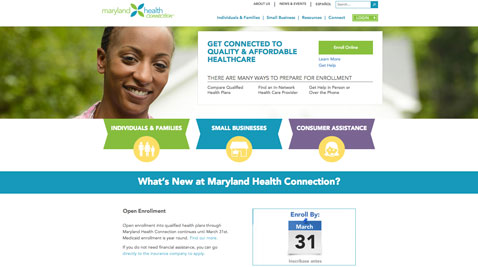ANNAPOLIS – Lawmakers in Annapolis approved the retroactive health care insurance bill for the final time Wednesday – a remedy for Marylanders who were unable to sign up for coverage through the state’s trouble-plagued insurance exchange website.
The emergency legislation passed quietly on its third Senate hearing with a vote of 34-7, and is now headed to Gov. Martin O’Malley. Earlier this month, O’Malley and Lt. Gov. Anthony Brown expressed support for the measure.
The measure is designed to provide health care coverage through Maryland Health Insurance Plan, a pool for high-risk individuals that state officials call a “safety net,” to those who attempted to register under the state’s new exchange, but found themselves unable to do so due to technical difficulties.
On Friday, Delegate Peter Hammen, D-Baltimore, urged lawmakers to “step on the accelerator” despite admitting the plan was “not a perfect system” during a House debate.
The bill was then amended and approved Tuesday by the House by a 94 to 42 vote, exactly a week following the Senate’s initial 38-8 approval.
Under the amendment agreed to by the Senate on Wednesday, state officials will be required to submit monthly reports detailing enrollment progress in order to help better monitor the exchange.
Concerns arose last week from House Republicans regarding the lack of concrete numbers for both enrollment and financing, however, according to a Maryland Health Connection official, the number of individuals eligible for coverage may be much lower than the initial estimate of up to 5,000.
Dori Henry, a spokeswoman for Maryland Health Connection, said that “as [the Maryland Health Connection] has been making calls back to get people enrolled, they are finding that about a third are Medicaid eligible.”
“There could be people who, once they go through the process and find out how much the premium will be, will decide they don’t want to do retroactive coverage,” she said.
According to a Jan. 24 report, 1,407 households have signed up for retroactive coverage from the four private insurance companies participating in the state’s exchange.
The legislation is expected to cost the state from $5 million to $10 million, depending on the final number of enrollees.

